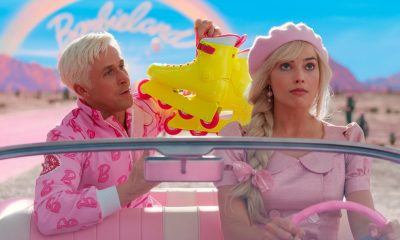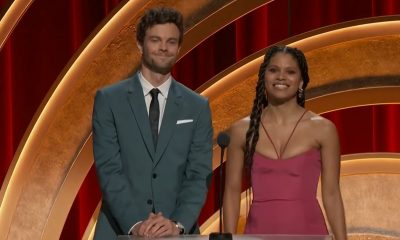Arts & Entertainment
Out actor relishes ‘Superstore’ role
Nico Santos says playing gay and Filipino is double blessing
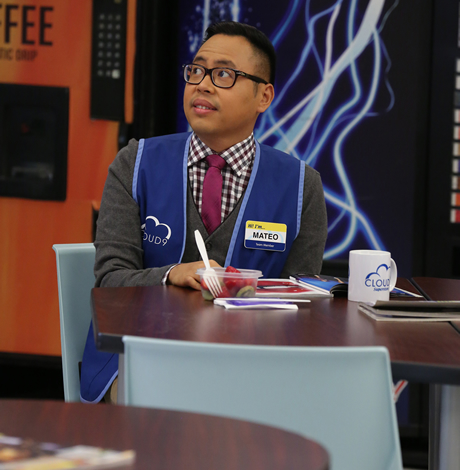
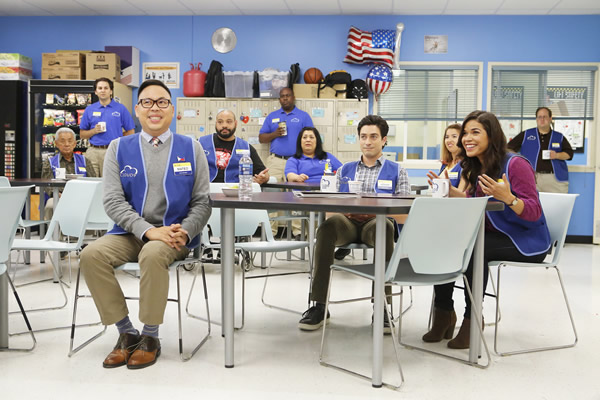
Nico Santos, front left, as Mateo in ‘Superstore.’ (Photo by Chris Haston; courtesy NBCUniversal)
While big-box retail store customers have their own set of problems, such as navigating the endless aisles, employees dwell in their own retail hell. “Superstore” is NBC’s latest workplace comedy from the executive producer of “The Office” and stars America Ferrera (Amy) and D.C. native Ben Feldman (Jonah). Employee frustrations are amplified at the fictional Cloud 9, a Walmart-esque superstore, such as assisting irate customers and accidentally marking electronics at $0.25 instead of 25 percent off causing a riot in the store.
Mateo, played by Nico Santos, 37, is a newly hired Cloud 9 associate who won’t let the annoyance of retail, or anyone, stand in the way of his ambition to succeed at work. Mateo also happens to be a gay Filipino man and undocumented illegal immigrant.
Santos and Mateo have a lot in common — Santos is also a gay Filipino man, but is launching a professional acting career instead of working the sales floor. Born and raised in the Philippines, Santos immigrated to the United States at 15 years old and has been immersed in the performing arts ever since.
Speaking to the Washington Blade in between filming the show’s Halloween episode, Santos talked the horrors of retail, Mateo’s upcoming love interest and how wearing chaps might be the hardest part of being a cowboy.
WASHINGTON BLADE: How did you get into acting?
NICO SANTOS: I was in a few high school plays and musicals and I majored in theater as well. But I kind of deviated from that and my background mostly is in stand-up comedy. When I lived in San Francisco, I started stand up comedy there. I moved to Los Angeles six years ago doing stand up and just trying to get my half-hour Comedy Central special going and trying to get my name into comedy clubs here. But I auditioned for the CBS Diversity Showcase, which is an industry showcase here that’s presented to agents and casting directors. And that’s how I got my agent. I started going out on auditions and started booking small roles here and there. Then “Superstore” came along and it’s been my first professional acting job. I still can’t believe that all of this is happening. It’s a new world to me.
BLADE: When you first auditioned for “Superstore” did you immediately connect with the character of Mateo?
SANTOS: I did. Mateo was originally written as a straight, Latino guy. Sort of like a tough gangster guy. But I was reading the text of the materials that were sent to me and he comes from the same sort of immigrant background and had a large family, and I came from the same background. So it was something I was drawn to. But I was reading the text and I was thinking to myself there’s no way I can play a butch, Latino gangster. I can play butch, but not that butch. So I just kind of scanned the text and was like, “I can totally picture a shady queen saying these words.” So I kind of made it my own, and they loved my take on the character and changed the character to be a gay Filipino.
BLADE: That’s a rare representation on TV. How do you feel about that?
SANTOS: I’m so happy that I get to be a part of this new way of Asian representation that’s happening right now. The last couple years you’ve had shows like “Fresh Off the Boat” and “Dr. Ken” and now “Superstore.” But certainly the representation of Asian Americans and Asians in general has been a lot better these last couple of years. But it is so rare to see a gay Filipino character in television. I’ve talked to all my other Filipino actor friends and a lot of times we get asked to play other Asian parts. Like the auditions we go to we get asked to play Japanese or Chinese or Korean. We never get to play Filipino, which still boggles my mind because we are one of the largest Asian minorities in the United States, but we’re hardly represented in the media. I’m definitely so happy that I get to represent not only the LGBT side of my community, but the whole Filipino community as well.
BLADE: “Superstore” is a workplace comedy comparable to other shows like “The Office” and “Parks and Recreation.” Do you ever feel any pressure to live up to that?
SANTOS: Yes and no. Obviously I would love for our show to have such a long and successful run like “The Office” and “Parks and Recreation.” I certainly hope that’s in our future. I know we’ve been compared to those shows, but I think we are very unique and have found our own voice early on. I will say the one main difference that separates us from those shows is not everyone has worked in an office. But everybody has been in one of these stores whether you have been behind the register or in front of the register. It’s something we’ve all experienced. I think that’s why it’s struck a chord with everybody. Not only do you see or recognize these characters and everyone in the cast but it’s something you experience every day. You have to go to a store every day to get your necessities.
BLADE: Have you ever worked in a big-box store like Cloud 9?
SANTOS: I’ve never worked in a big-box store, but I have plenty of retail experience. When I used to live in San Francisco and started doing stand up comedy, my day job was working retail. But I worked in high-end luxury retail. So I worked at Neiman’s and Jimmy Choo and Dior. Honestly once I started working on this show, I was able to draw on that retail experience and use it. I was like, “All eight years of working retail finally paid off.” Because it doesn’t matter whether you’re selling $0.99 toilet paper or a $10,000 gown, it’s all the same crazy customers that you have to deal with.
BLADE: How would you compare yourself and Mateo as employees?
SANTOS: There’s a lot of me in Mateo and that’s why I love playing him. I’m maybe not as backstabby. Mateo will backstab anybody who gets in his way. When I’m working on the job I want to do it well and I kind of obsess over it. I always make sure that the job that I take is something that I enjoy. So there’s definitely a whole lot of me in Mateo.
BLADE: Being an out, gay actor, what’s it like representing the LGBT community on a show that has such a wide reach as “Superstore”?
SANTOS: I’m really happy to do that. LGBT representation has sort of changed throughout the years. With shows like “Will and Grace,” you have Will who is sort of like a more masculine character, but the character Jack got a lot of criticism for being flamboyant. And now a character like mine who is more on the feminine side I think even like five years ago would have been criticized like, “Oh, you guys are playing a stereotype.” To me, I always get so annoyed when people criticize gay men for being feminine. Being feminine is not a bad thing. That’s part of the spectrum of the LGBT community. Just because a gay man is feminine that’s not a stereotype. Feminine gay men exist, and they need to be represented. Especially for me, I am feminine in real life and not having seen those characters before as just a regular guy on television I think is important.
BLADE: What can you tell us about Mateo’s upcoming love interest this season?
SANTOS: It’s great because how it comes about is really unexpected. For Mateo, he’s still figuring out does he like this guy, how is this going to benefit him. There’s always that question in the back of his head of what’s in it for him. I think the storyline is really great. My love interest is being played by this great actor Michael Bunin who is so funny and so charming. I think audiences will get a real kick out of it.
BLADE: Any sneak peaks about the Halloween episode that you’re filming?
SANTOS: All I can tell you right now is that I’m a cowboy for this episode and I’ve been wearing cowboy boots and chaps all day. After doing all my scenes in chaps and cowboy boots, I have a newfound appreciation for cowboys. I will certainly be watching “Brokeback Mountain” with a completely different lens now.
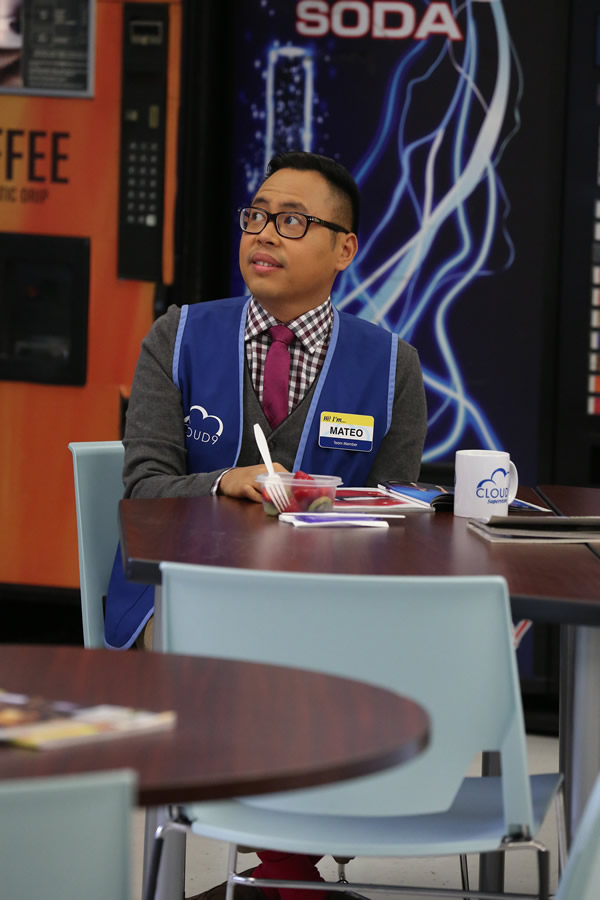
Nico Santos as Mateo in ’Superstore.’ Though he says he’s less ‘backstabby’ in real life, Santos identifies with his character. (Photo by Chris Haston; coutesy NBCUniversal)
Arts & Entertainment
2026 Most Eligible LGBTQ Singles nominations
We are looking for the most eligible LGBTQ singles in the Washington, D.C. region.

Are you or a friend looking to find a little love in 2026? We are looking for the most eligible LGBTQ singles in the Washington, D.C. region. Nominate you or your friends until January 23rd using the form below or by clicking HERE.
Our most eligible singles will be announced online in February. View our 2025 singles HERE.
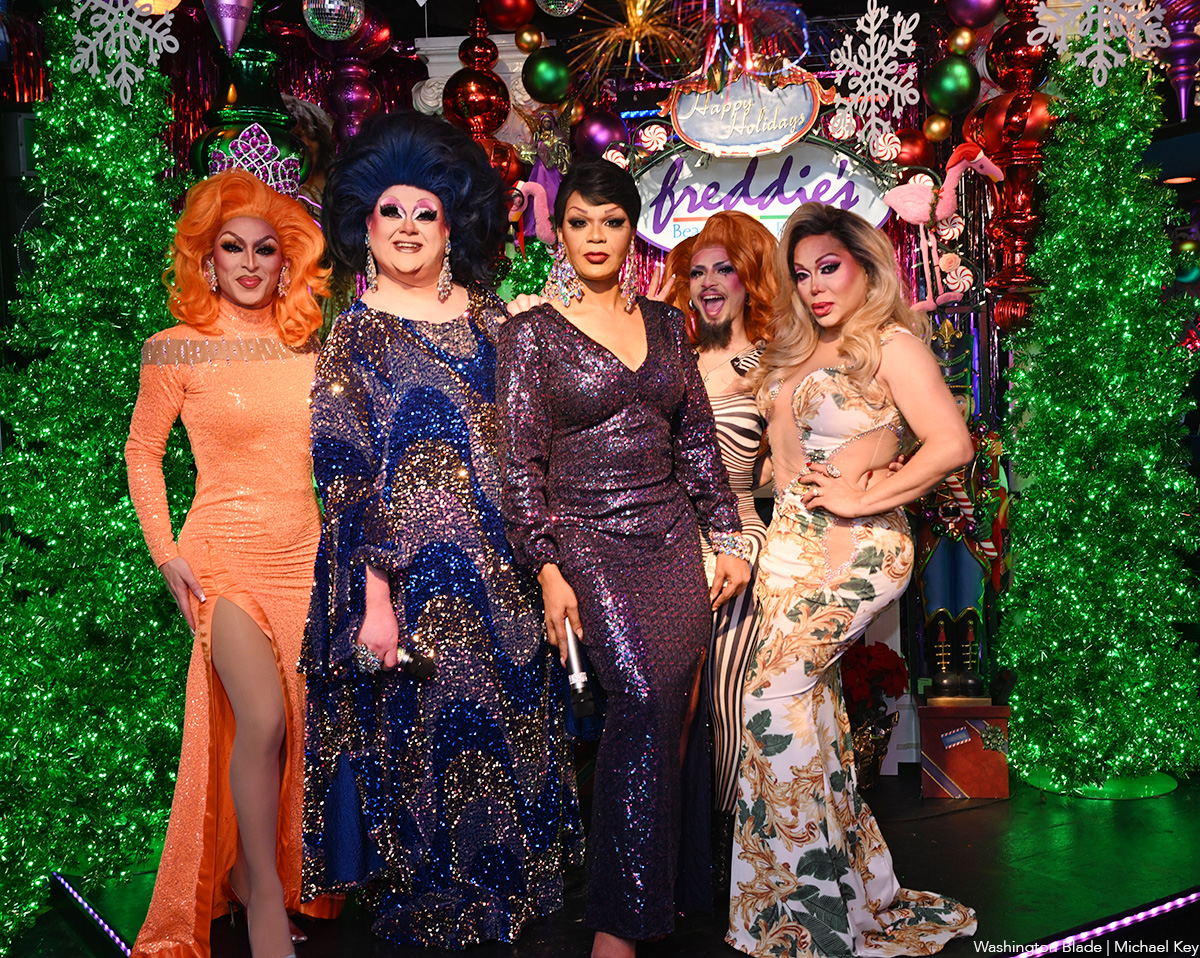
The Freddie’s Follies drag show was held at Freddie’s Beach Bar in Arlington, Va. on Saturday, Jan. 3. Performers included Monet Dupree, Michelle Livigne, Shirley Naytch, Gigi Paris Couture and Shenandoah.
(Washington Blade photos by Michael Key)

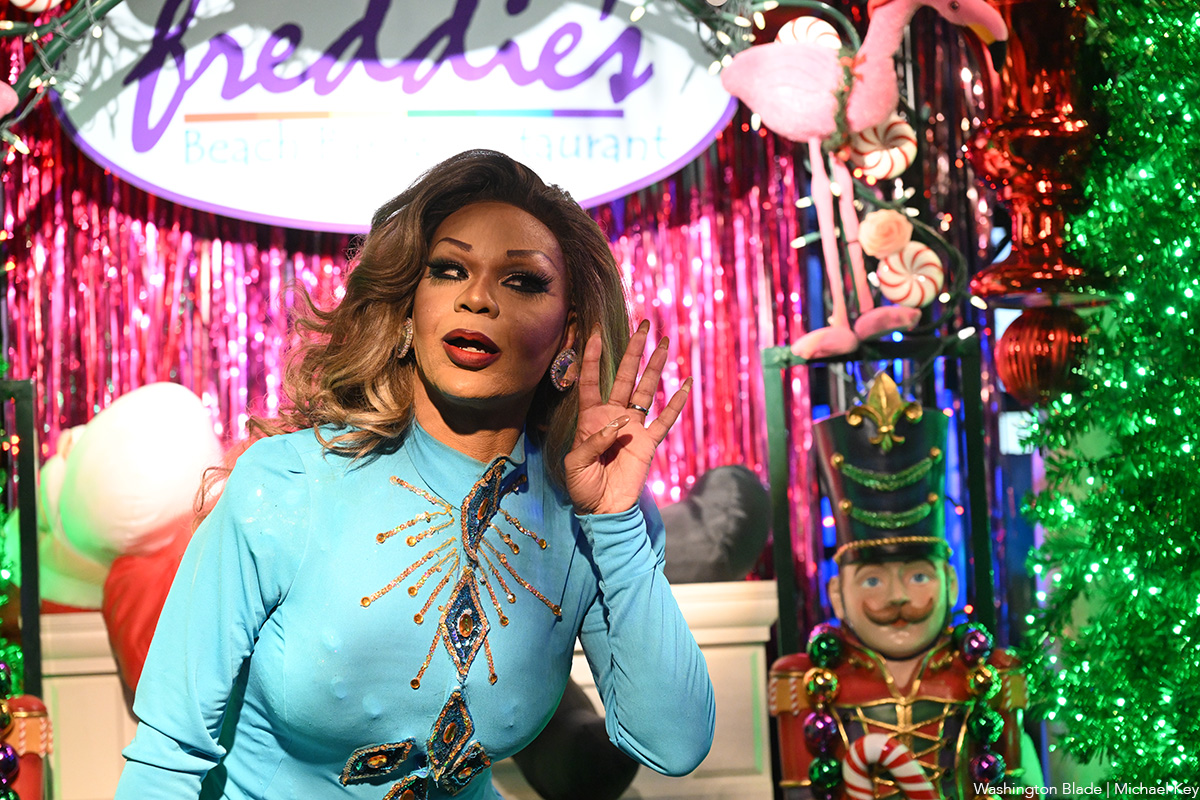





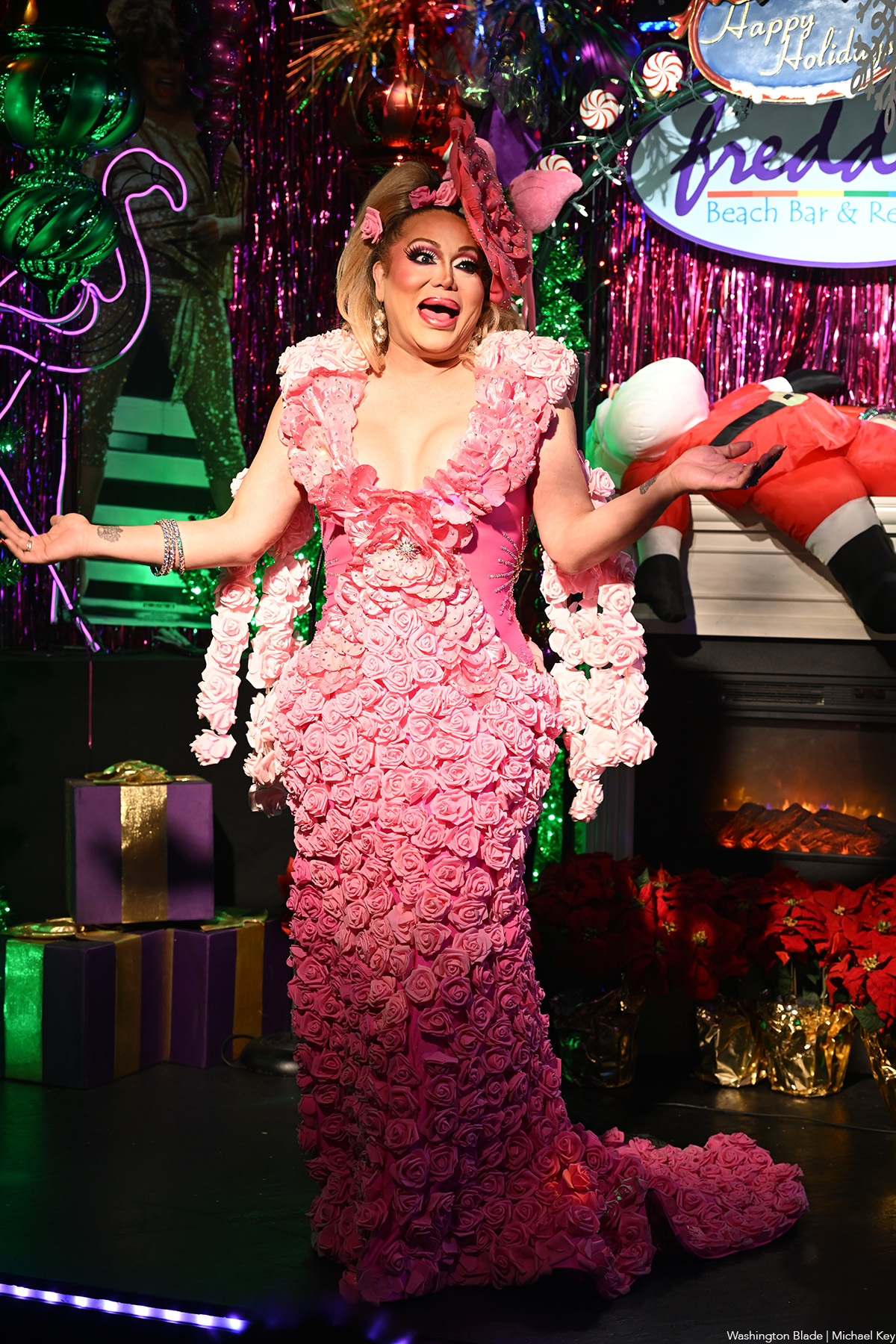
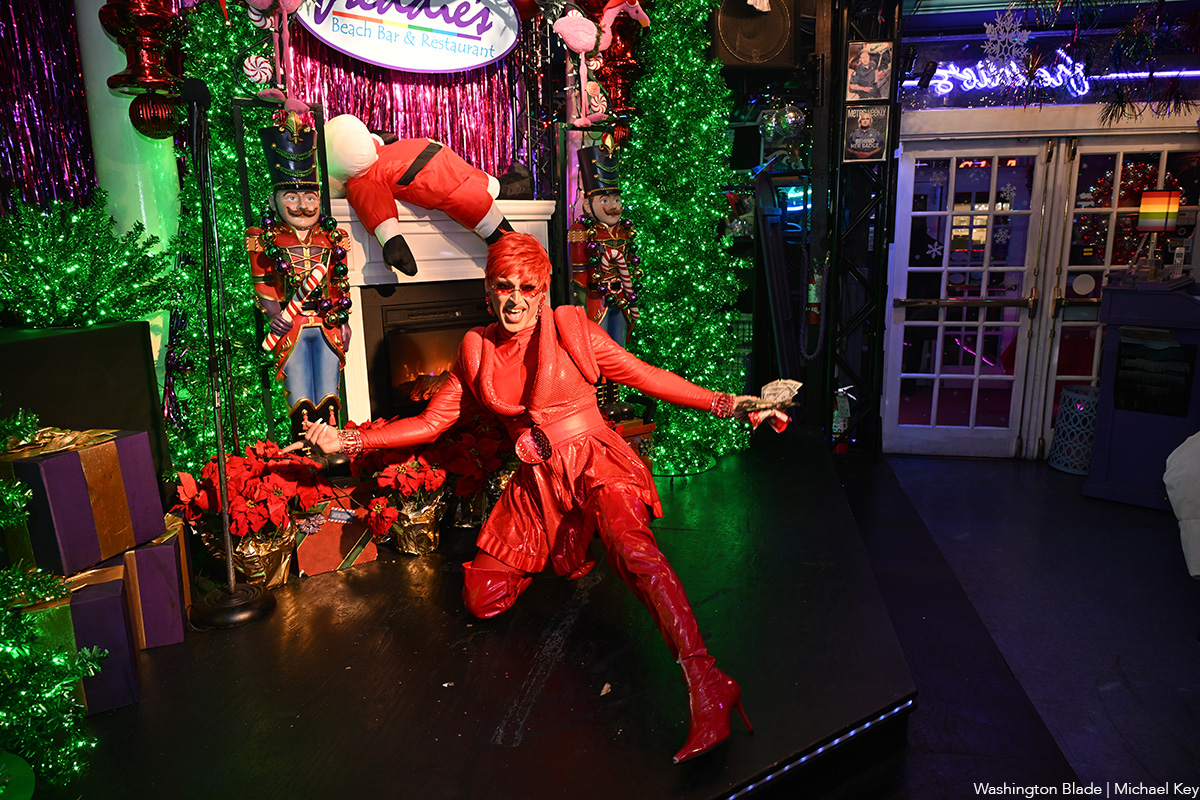
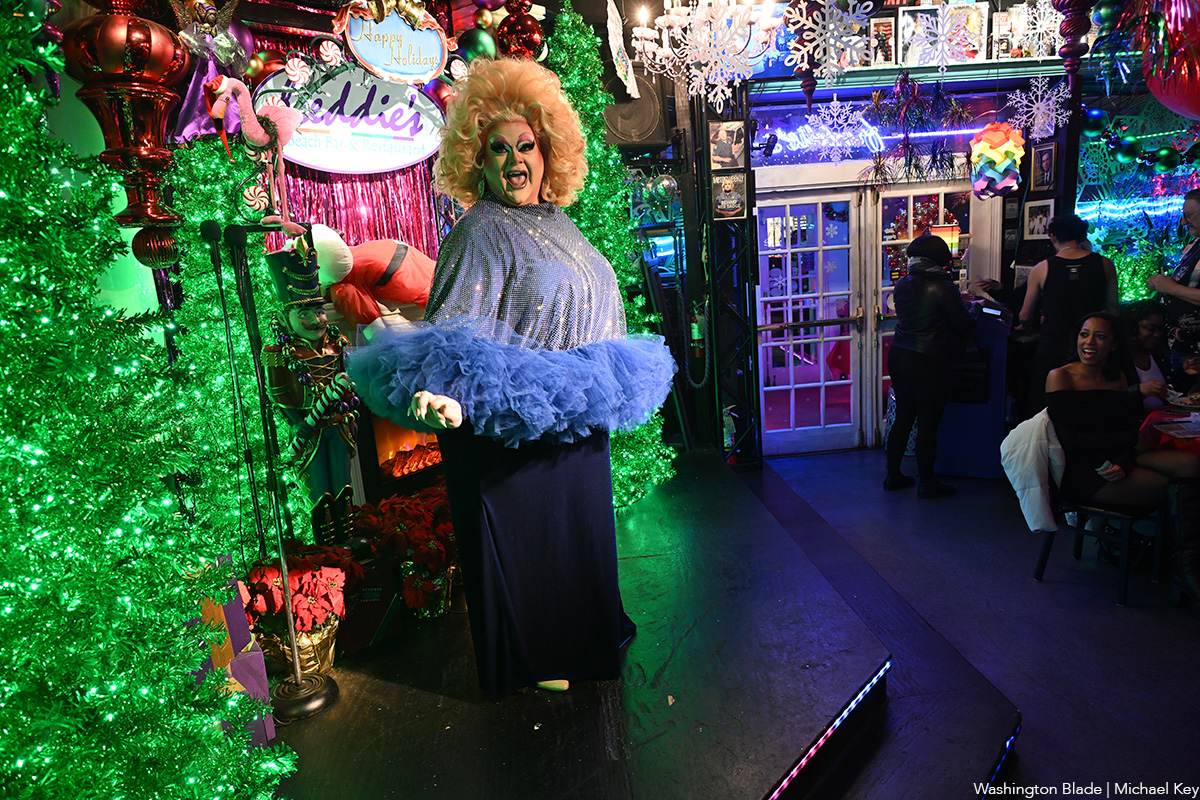
a&e features
Queer highlights of the 2026 Critics Choice Awards: Aunt Gladys, that ‘Heated Rivalry’ shoutout and more
Amy Madigan’s win in the supporting actress category puts her in serious contention to win the Oscar for ‘Weapons’
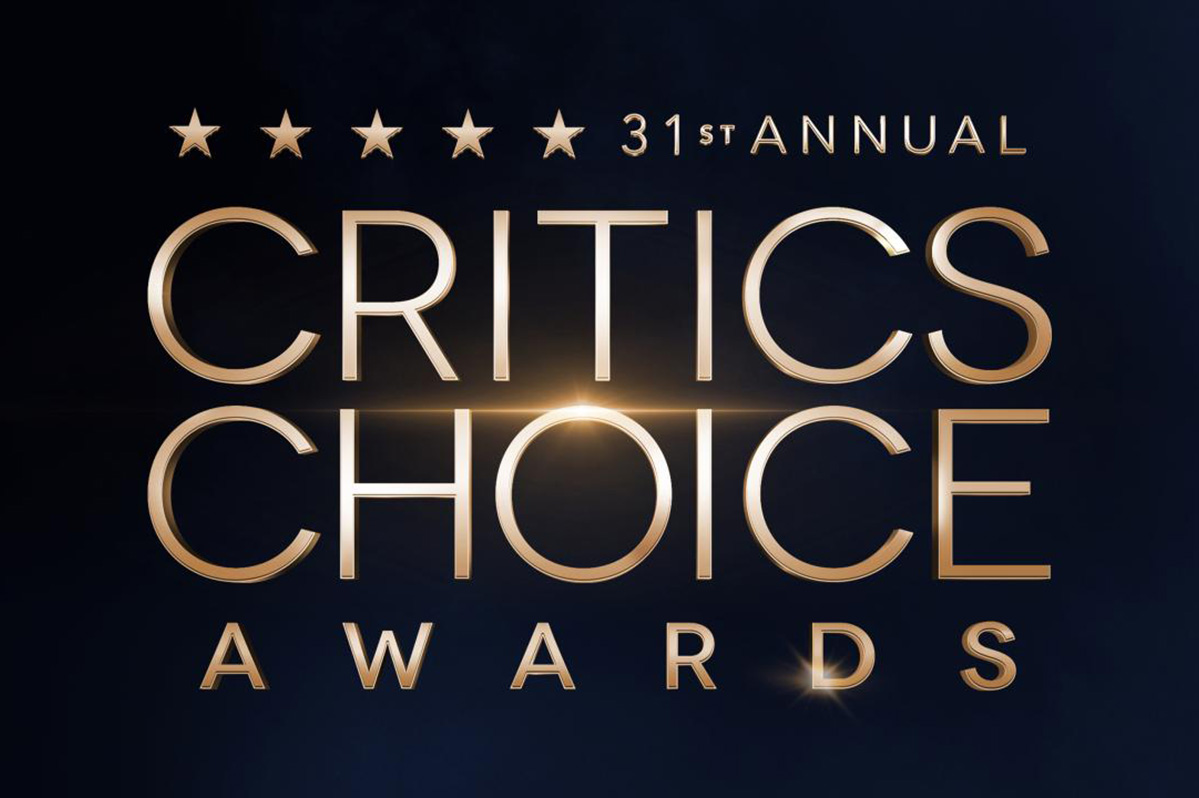
From Chelsea Handler shouting out Heated Rivalry in her opening monologue to Amy Madigan proving that horror performances can (and should) be taken seriously, the Critics Choice Awards provided plenty of iconic moments for queer movie fans to celebrate on the long road to Oscar night.
Handler kicked off the ceremony by recapping the biggest moments in pop culture last year, from Wicked: For Good to Sinners. She also made room to joke about the surprise hit TV sensation on everyone’s minds: “Shoutout to Heated Rivalry. Everyone loves it! Gay men love it, women love it, straight men who say they aren’t gay but work out at Equinox love it!”
The back-to-back wins for Jacob Elordi in Frankenstein and Amy Madigan in Weapons are notable, given the horror bias that awards voters typically have. Aunt Gladys instantly became a pop culture phenomenon within the LGBTQ+ community when Zach Cregger’s hit horror comedy released in August, but the thought that Madigan could be a serious awards contender for such a fun, out-there performance seemed improbable to most months ago. Now, considering the sheer amount of critics’ attention she’s received over the past month, there’s no denying she’s in the running for the Oscar.
“I really wasn’t expecting all of this because I thought people would like the movie, and I thought people would dig Gladys, but you love Gladys! I mean, it’s crazy,” Madigan said during her acceptance speech. “I get [sent] makeup tutorials and paintings. I even got one weird thing about how she’s a sex icon also, which I didn’t go too deep into that one.”
Over on the TV side, Rhea Seehorn won in the incredibly competitive best actress in a drama series category for her acclaimed performance as Carol in Pluribus, beating out the likes of Emmy winner Britt Lower for Severance, Carrie Coon for The White Lotus, and Bella Ramsey for The Last of Us. Pluribus, which was created by Breaking Bad’s showrunner Vince Gilligan, has been celebrated by audiences for its rich exploration of queer trauma and conversion therapy.
Jean Smart was Hack’s only win of the night, as Hannah Einbinder couldn’t repeat her Emmy victory in the supporting actress in a comedy series category against Janelle James, who nabbed a trophy for Abbott Elementary. Hacks lost the best comedy series award to The Studio, as it did at the Emmys in September. And in the limited series category, Erin Doherty repeated her Emmy success in supporting actress, joining in yet another Adolescence awards sweep.
As Oscar fans speculate on what these Critics Choice wins mean for future ceremonies, we have next week’s Golden Globes ceremony to look forward to on Jan. 11.
-

 Photos4 days ago
Photos4 days agoThe year in photos
-

 Sponsored3 days ago
Sponsored3 days agoSafer Ways to Pay for Online Performances and Queer Events
-

 District of Columbia2 days ago
District of Columbia2 days agoTwo pioneering gay journalists to speak at Thursday event
-

 a&e features2 days ago
a&e features2 days agoQueer highlights of the 2026 Critics Choice Awards: Aunt Gladys, that ‘Heated Rivalry’ shoutout and more



